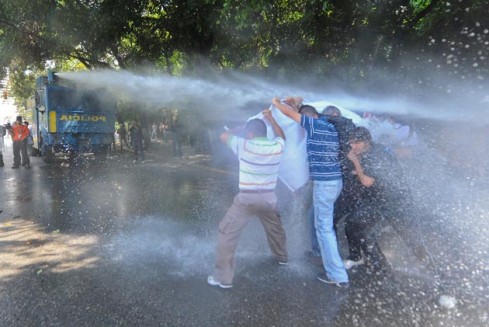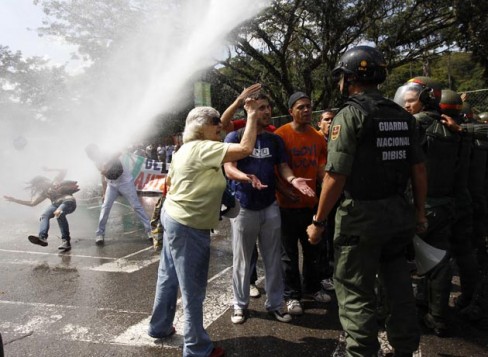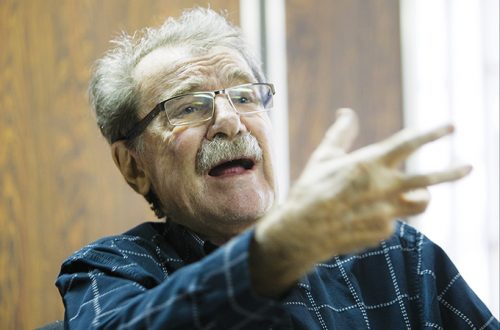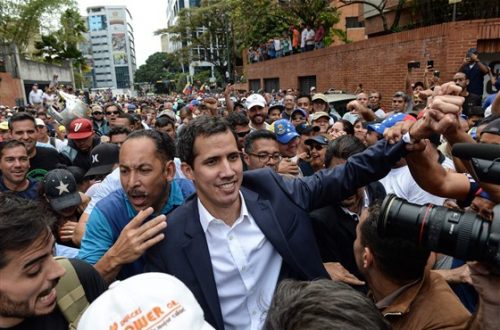While some parts of the world endure a bitter cold spell, in Venezuela it’s apparently so hot that the National Guard is spraying folks with water cannons to cool them off.


And if that isn’t good enough, they shoot plastic bullets at them.

AP reports from Caracas:
Police and soldiers fired water cannons and plastic bullets Thursday as thousands of students protested against a law passed by Venezuela’s congress that increases government powers over the country’s universities.
At least four people were injured, including a news photographer who was treated for a cut to the head after being hit with an object.
Dozens of police and National Guard troops in anti-riot gear blocked student protesters outside the Central University of Venezuela in Caracas, firing plastic bullets into the air and also at demonstrators.
The law governing universities was approved by the National Assembly before dawn Thursday, and students denounced it as an attempt by President Hugo Chavez to clamp down on autonomous state universities that have been a bastion of opposition to his government.
“They won’t take away our right to protest,” the protesters chanted. “Long live the university! … Out with the military boot!”
The students had planned to march to the National Assembly but were turned back. Later, hundreds of students managed to continue the march through Caracas on another route, evading authorities who were firing plastic bullets and a water cannon, and shouting: “People, listen! This is a dictatorship!”
…..
University autonomy has been an emotional issue in many nations, especially in Latin America, where students and professors long struggled to maintain some independence from dictatorial conservative regimes — seeing the school as an island where critical thought is allowed. The concept usually involves allowing universities to choose their own administrators and forbidding outside police or troops from entering campuses.Chavez’s socialist government has defended the law saying it seeks to make the universities more inclusive and democratic.
…..
Other newly approved laws boost the government’s powers to intervene in the banking sector, expand regulation of Internet messages, make it easier to revoke the licenses of TV or radio stations and give the president power to enact laws by decree for 18 months.Newly elected opposition lawmakers said in a joint statement Wednesday that the laws are dismantling democracy and represent a “coup d’etat by the state.” They called the laws unconstitutional.
Chavez defends the decree powers as necessary to speed relief after recent floods and mudslides as well as to accelerate his government’s socialist-oriented policies.
The decree powers will allow Chavez to pass laws without consulting lawmakers in a range of areas after the new National Assembly takes office next month.
Another law passed this week allows for the suspension of lawmakers who abandon their political party while in office — a move meant to block the kind of defections that saw a dozen legislators break with Chavez during the current session.
Lawmakers have also rewritten parliamentary rules shortening the times allowed for debates and giving more power to the National Assembly president and Chavez’s party, which will have a majority with 98 of the 165 seats.
At The Devil’s Excrement blog, Miguel reports: “As the protests were taking place, Chavez forced all TV stations to show his broadcast, barring them from showing the protests.”

